
Research & Innovation
Through effective partnerships, our collaborative thematic research program is dedicated to tackling essential questions aimed at enhancing the value, resilience, scalability, and sustainability of coral restoration efforts.
Research Output
We have a detailed monitoring programme regularly measuring progress on our reefs, and we publish the results in peer-reviewed scientific journals. The highlights of our successes are shown here.
Vida et al (2024)
Impacts of “Reef Star” coral restoration on multiple
metrics of habitat complexity
Watt-Pringle et al (2024)
Survival rates of branching Acropora morphologies on coral rubble stabilization structures
Leung et al (2024)
A Practical Guide to Restoration and Rehabilitation of Rubble on Coral Reefs
Strudwick et al (2024)
Assessing how metal reef restoration structures shape the functional and taxonomic profile of coral-associated bacterial communities
Watt-Pringle et al (2024)
Coral reef restoration in Indonesia: lessons learnt from the world’s largest coral restoration nation
Lendo et al (2024)
Carbonate budgets induced by coral restoration of a Great Barrier Reef site following cyclone damage
Strudwick et al (2023)
Impacts of plastic-free materials on coral-associated bacterial communities during reef restoration
Watt-Pringle et al (2022)
Suppressed recovery of functionally important branching Acropora drives coral community composition changes following mass bleaching in Indonesia
Shaver et al (2022)
A roadmap to integrating resilience into the practice of coral reef restoration
Lamont et al (2022)
HydroMoth: Testing a prototype low-cost acoustic recorder for aquatic environments
Williams et al (2022)
Enhancing automated analysis of marine soundscapes using ecoacoustic indices and machine learning
McArdle et al (2022)
Mars and Coral Reef Restoration: Learnings From 15+ Years of Trial and Error
Lamont et al (2021)
The sound of recovery: coral reef restoration success is detectable in the soundscape
Vaughan (2021)
Active coral restoration: techniques for a changing planet. J Ross Publishing, ISBN 9781604271430
Saunders et al (2020)
Bright spots in coastal marine ecosystem restoration, Current Biology 30: R1500-R1510.
Seraphim et al (2020)
Interactions between coral restoration and fish assemblages: implications for reef management. Journal of Fish Biology 97: 633-655.
Williams et al (2019)
Large-scale coral reef rehabilitation after blast fishing in Indonesia, Restoration Ecology 27: 447-456.


Research Collaborators
When we install Reef Stars, we don't just grow Hope for the coral reefs we're restoring. We grow and spread Hope for each person who is part of the journey, providing tangible evidence that there are man-made solutions for man-made problems.
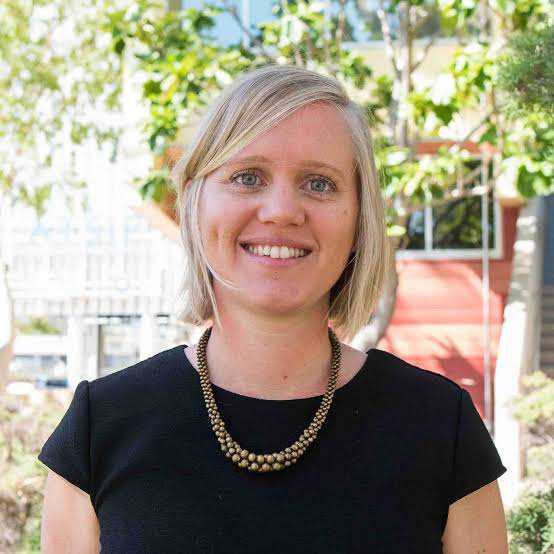
Lisa Boström-Einarsson
Marine Ecologist & Researcher with LEC REEFS at Lancaster Environment Centre, Lancaster University
Lisa is a marine ecologist currently working with LEC REEFS at Lancaster Environment Centre, Lancaster University, UK. Her previous postdoc was at TropWATER, James Cook University, and she also completed my PhD at the ARC Centre of Excellence for Coral Reef Studies, at James Cook University.
Her research is composed of three main pillars: 1) understanding the effects of habitat loss on coral reef species, 2) advancing evidence-based and best-practice guidelines for habitat restoration in coastal ecosystems, and 3) developing solutions to mitigate disturbances on coral reefs. Together, these topics have allowed Lisa to bridge the gap between fundamental and applied science with the aim of improving the outcome of conservation efforts.
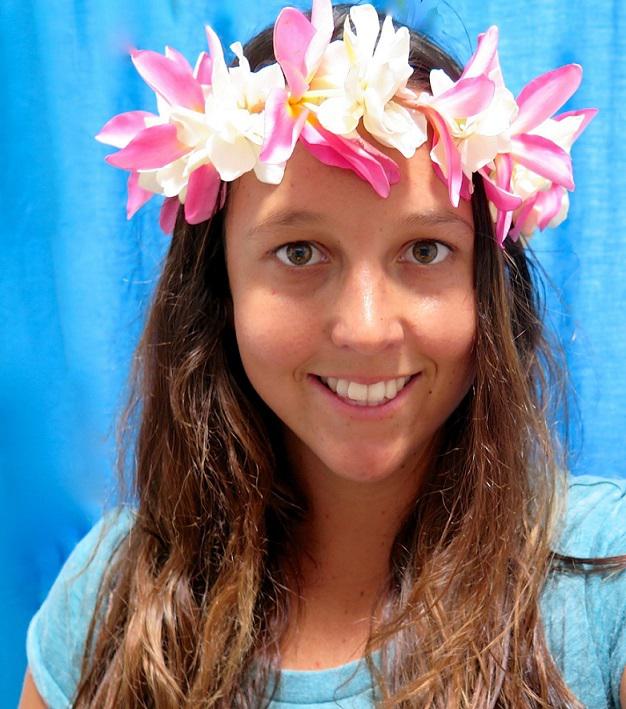
Alyssa Giffin
Phd Research & Marine Biologist
Alyssa was a Phd student at Griffith University, University, graduating in 2023. Alyssa’s PhD thesis “Marine and coastal ecosystem-based adaptation” looked at how coastal ecosystems can be used to help communities adapt to climate change. Her chapters included systematic literature review, spatial planning and modelling.
Alyssa also completed projects in collaboration with Mars, focusing on the use of power analysis as a tool for scaling-up monitoring of coral reef restoration.
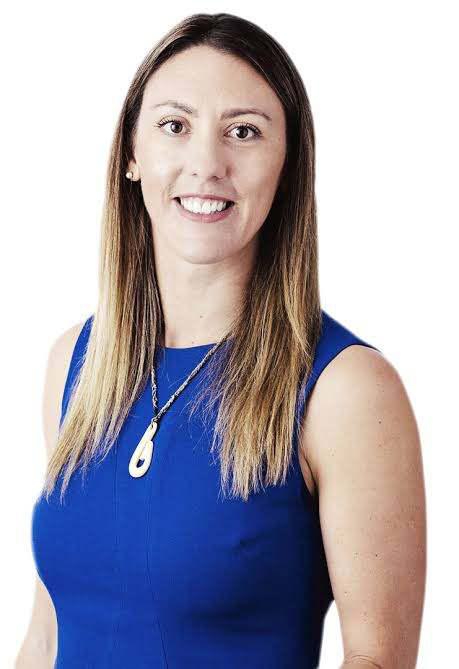
Emma Camp
Marine Biologist & Senior Lecturer- University of Technology, Sydney
Dr Emma Camp is an award-winning and internationally renowned corals expert who is passionate both about the protection of coral reefs, and the involvement of women and girls in science, technology, engineering and mathematics.
Emma is the Team Leader of the Future Reefs Program within the Climate Change Cluster at UTS.
Her research focuses on the physiology, ecology and biogeochemistry of coral reefs, and she was a co-founder of the Coral Nurture Program, a new approach for caring for the Great Barrier Reef initiated by a partnership between tourism and science.

Ben Williams
PhD Student & Postgraduate Teaching Assistant at UCL
Ben is a PhD student at UCL and ZSL, supported by the Fisheries Society of the British Isles. His research focuses on developing machine-learning techniques to monitor and support coral reef conservation.Ben has published several papers and has frequently had his work featured in high profile news outlets.
To date, Ben's has primarily focused on monitoring coral reefs using the ‘soundscape’. This has included the development of low-cost recording technology and machine learning driven analysis. Ben is also applying machine learning to detect illegal bomb fishing, a major cause of reef destruction across the globe.
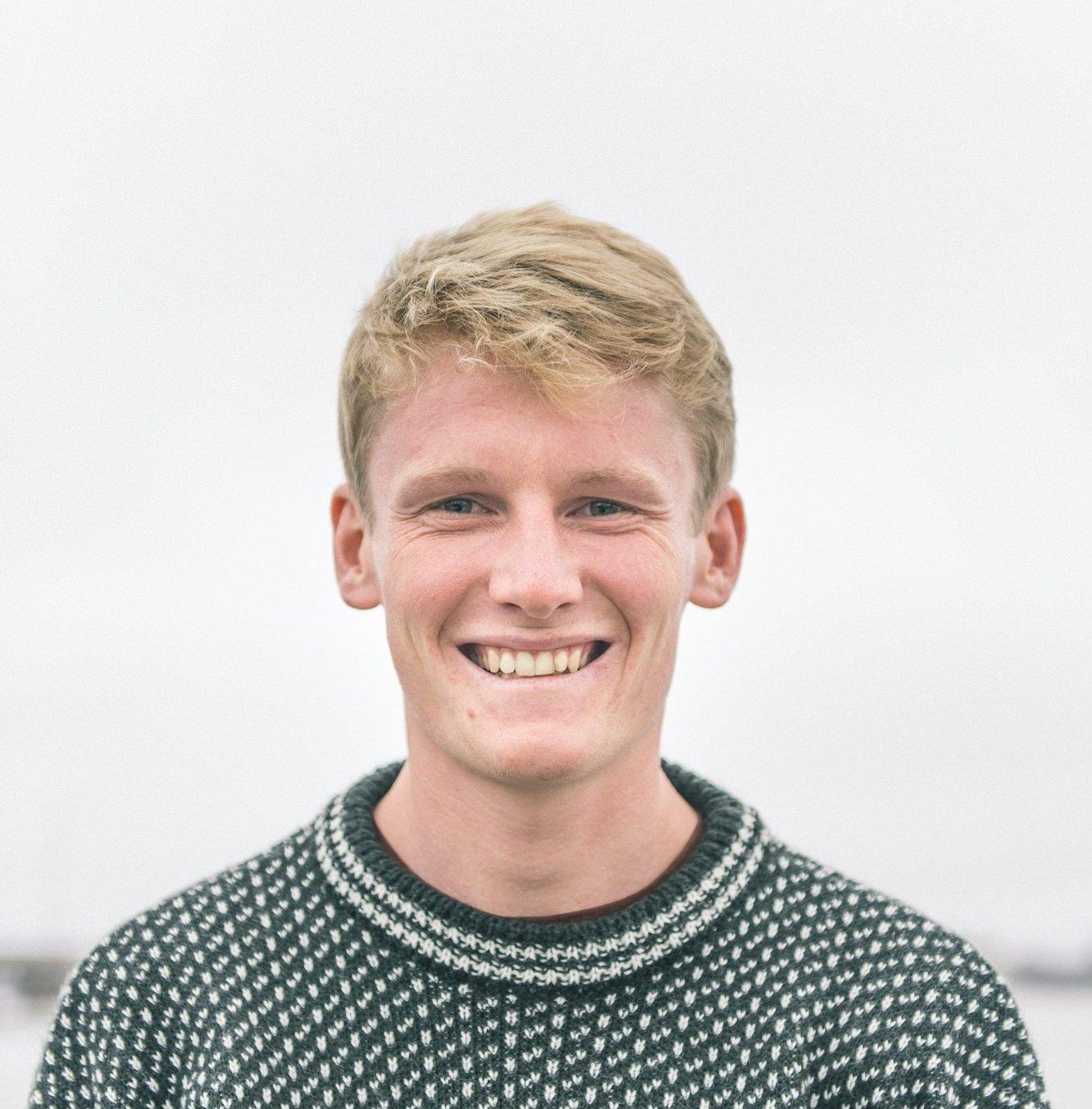
Tim Lamont
Royal Commission Research Fellow at Lancaster University
Tim is a marine biologist at Lancaster Environment Centre, with research interests in coral reef ecology and restoration. He aims to understand the processes at work on healthy reefs, in order to guide efforts to restore degraded ecosystems. Tim studied has carried out research on coral reefs across the Indo-Pacific region, and completed a PhD in reef bioacoustics at the University of Exeter in 2020. He started his current research fellowship at Lancaster in 2022, funded by the Royal Commission of 1851 and in collaboration with the Mars Coral Reef Restoration Programme.
Tim uses a range of research methods to tackle issues in coral reef ecology and restoration. Three major themes of his work are:
- Ecosystem-level functions on restored coral reefs
- Bioacoustic techniques for monitoring and managing coral reefs
- Widening engagement with coral reef science
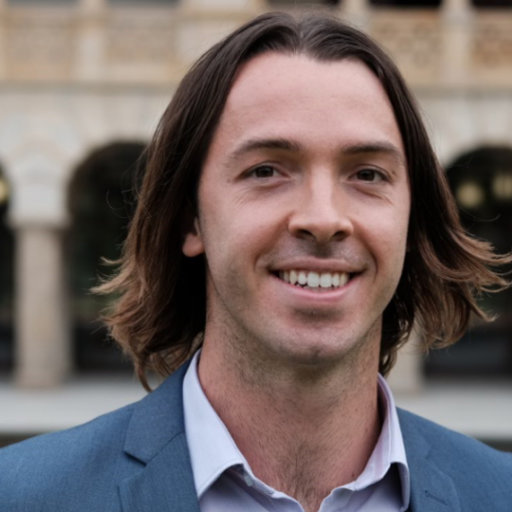
Justin Geldard
PhD Student at University of Western Australia
Justin Geldard is a PhD Student at University of Western Australia.
As a coastal engineering researcher, keen free-diver, surfer and open water swimmer, he is passionate about exploring how to sustainably rehabilitate coral reefs and ecosystems that have been damaged by extreme climactic events. His research uses 3D printing technology to re-create coral structures which are then fitted with sensors for testing wave resilience.
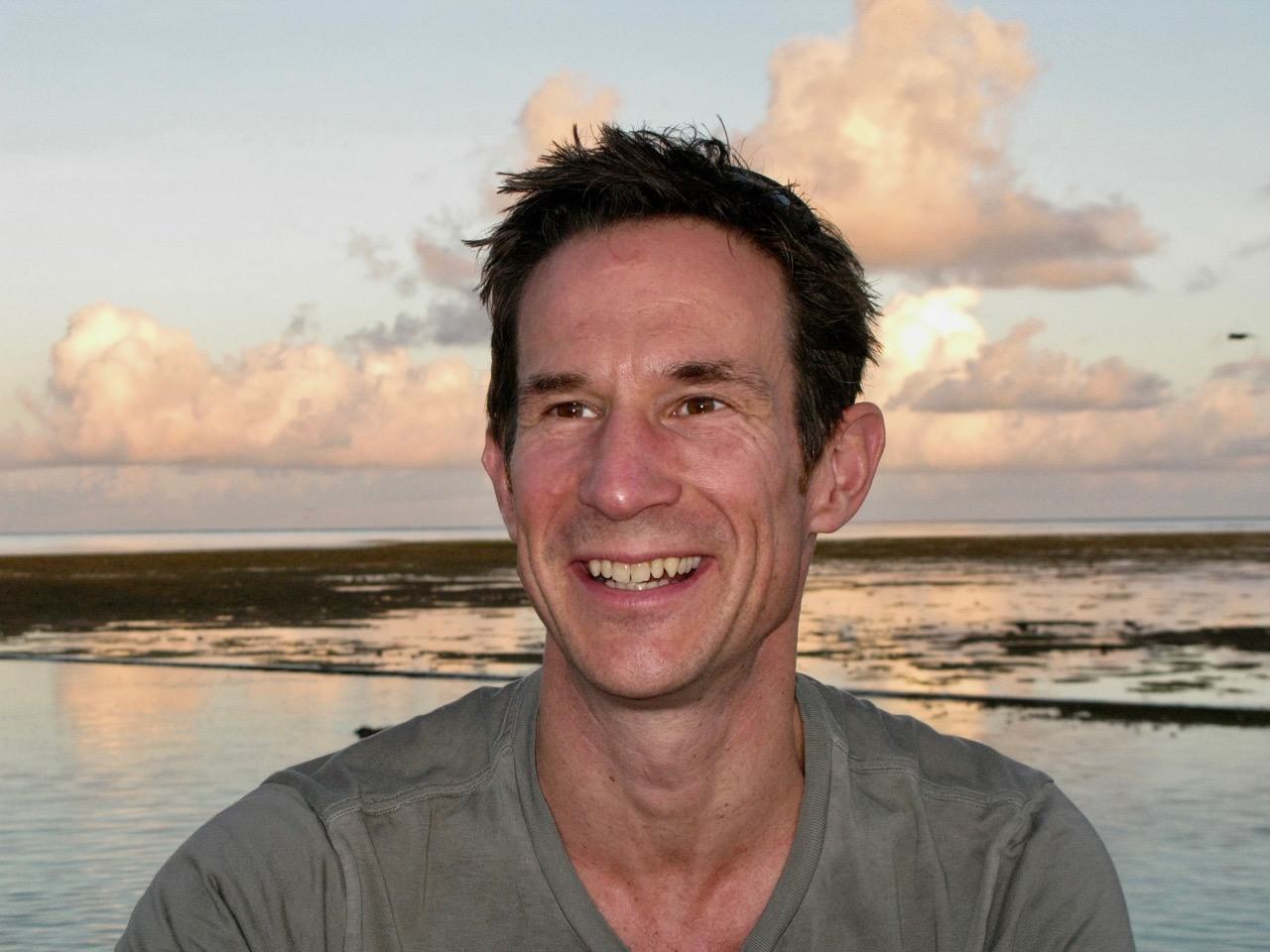
Steve Simpson
Professor of Marine Biology & Global Change- University of Bristol
Steve is a marine biologist and fish ecologist, with particular interests in the behaviour of coral reef fishes, bioacoustics, effects of climate change on marine ecosystems, conservation and management.
His research focuses on:
- The impact of anthropogenic noise on marine ecosystems
- The effects of climate change on fish and fisheries
- Sensory and orientation behaviour of marine organisms
- Dispersal, connectivity and biogeography
- Management
You can also watch him on Blue Planet 2 here: https://www.bbc.co.uk/iplayer/episode/b09jbn5f/blue-planet-ii-series-1-7-our-blue-planet#playt=00h11m24s

Ines Lange
Senior Research Fellow- University of Exeter
Ines's research addresses questions about the response of coral reef ecosystems to natural and human-induced environmental disturbances. She has used manipulative experiments to study the effects of local anthropogenic stressors, and has conducted long-term observations of reefs in naturally highly variable environments. More recently, Ines is evaluating the impacts of environmental change and reef management on the state and functioning of reef carbonate budgets and sediment budgets.

Jason Lynch
PhD Student- University College London
Jason is a PhD Student on the London NERC DTP and in collaboration with University College London. Jason is contributing to the Biome Health Project where he is investigating the impact of human pressure on coral reef health across the Great Sea Reef in Fiji. In collaboration with WWF-UK, WWF-Pacific and the University of the South Pacific, Jason is quantifying fish communities, benthic habitat structure and complexity using stereo-video diver surveys and photogrammetry, respectively. These are interwoven with a governance analysis creating an interdisciplinary project that hopes to aid local management of coral reef fisheries.

John Zhang
Founder of Studio JZ & Datascape Realities & Senior Lecturer at University of Westminster ·
At the University of Westminster, John is part of the Design Practice Research Group. His research interests are focused on museums as spaces of climate action, mixed reality technologies as experimental representation, and housing in a global context. He is the co-founder of Datascape Realities, a cross disciplinary research collective with the aim to visualise vital research data for the purposes of research, exhibition, and outreach.
John also worked to create a virtual world of coral reefs. This mixed reality installation at the Grant Museum of Zoology is a funded commission that has developed from the previous QHT-funded ‘Reimagining Coral Reefs’ projects.
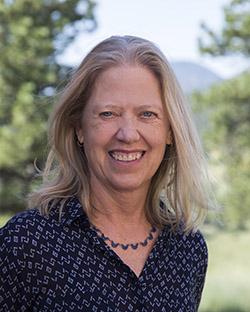
Joanie Kleypass
Research Scientist at the National Center for Atmospheric Science
Joanie Kleypas is a marine scientist at the National Center for Atmospheric Research, who investigates how rising atmospheric carbon dioxide is affecting marine ecosystems. Joanie has been heavily involved in the topic of "ocean acidification" since 1999, and has served on multiple national and international committees to help define and tackle the problem.
Joanie strives to conduct research that guides efforts to conserve coral reefs and other marine ecoystems during the high-CO2 window that is inevitable over the next few decades. She is currently using high-resolution modelling to address these issues in the Coral Triangle, a region of extreme marine biodiversity in the western tropical Pacific.

Rindah Vida
Masters Student at Universitas Padjadaran & Sheba Hope Grows Advocate
Rindah Talitha Vida is a marine biologist from Indonesia with a focus on marine ecology and conservation, particularly specialising in coral reef ecosystems. With three years of experience working on coral reef restoration projects in Indonesia, her current research is dedicated to evaluating the functional performance of restored coral ecosystems. This research examines habitat complexity to assess how effectively restored reefs can support diverse marine life and contribute to overall ecosystem health.

Cut Aja Gita Alisa
Research Assistant at Universitas Padjadaran & Sheba Hope Grows Advocate
Gita is an early career standout marine scientist, currently undertaking her Masters degree of marine science at IPB University. Gita has been part of both Mars Coral Reef Restoration Science Fieldwork Expeditions which took place in September 2022 and May 2023, where she was mentored in restoration science and monitoring by renowned scientists Dr. Timothy Lamont, Ben Williams, Jason Lynch and Dr. Ines Lange. Over 2023, Gita will complete the Sheba Hope Advocate Program (under sponsorship) and a 3-month studentship between September to December where she will visit world leading research institutes, present at a UK scientific conference, and develop her research career under Dr. Timothy Lamont.
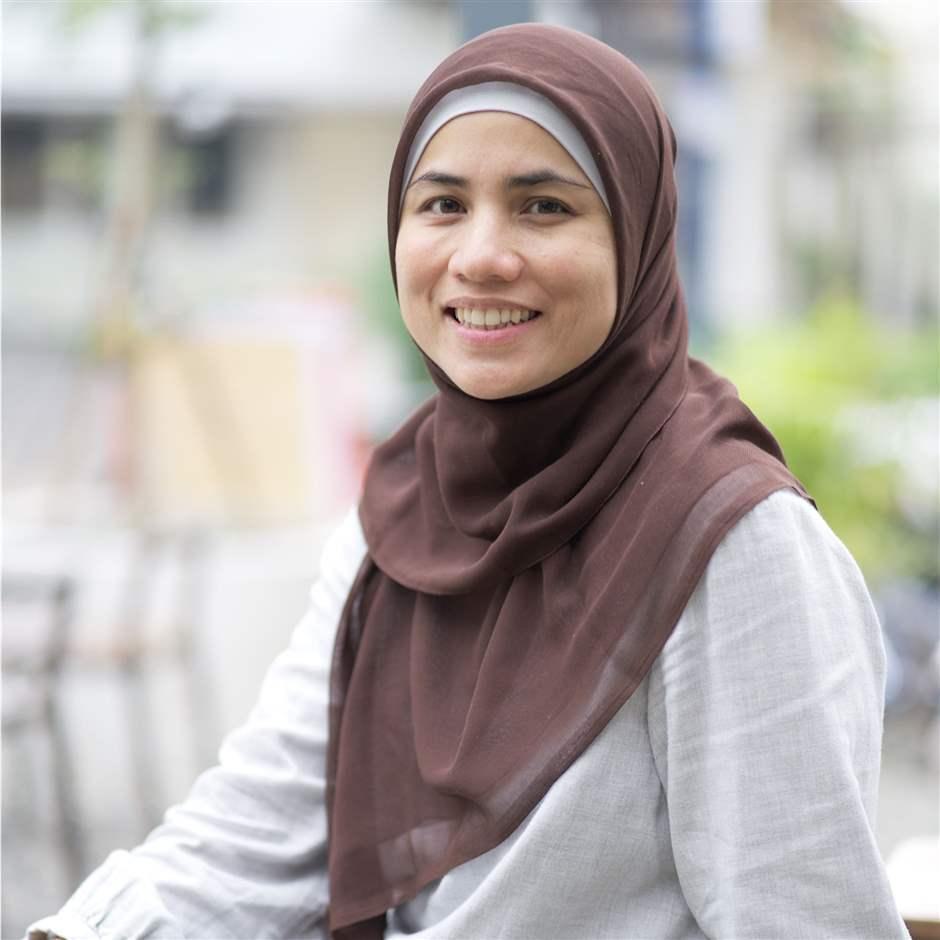
Tries Razak
Postdoctoral Researcher at Research Centre for Oceanography, National Research and Innovation Agency (BRIN) Indonesia.
Dr Tries Razak is a global expert on coral reef restoration. She has worked for decades with restoration programmes across Indonesia, generating a prolific record of impactful research.
She is currently a postdoctoral research fellow at Research Centre for Oceanography, National Research and Innovation Agency, Indonesia and serves as an Advisor to the Governor of West Java Province on marine affairs and fisheries. She received her PhD from the University of Queensland, Australia, her MSc in Marine Biodiversity and Systematics from Leiden University, Netherlands, and obtained her BSc in Marine Science from IPB University, Indonesia.
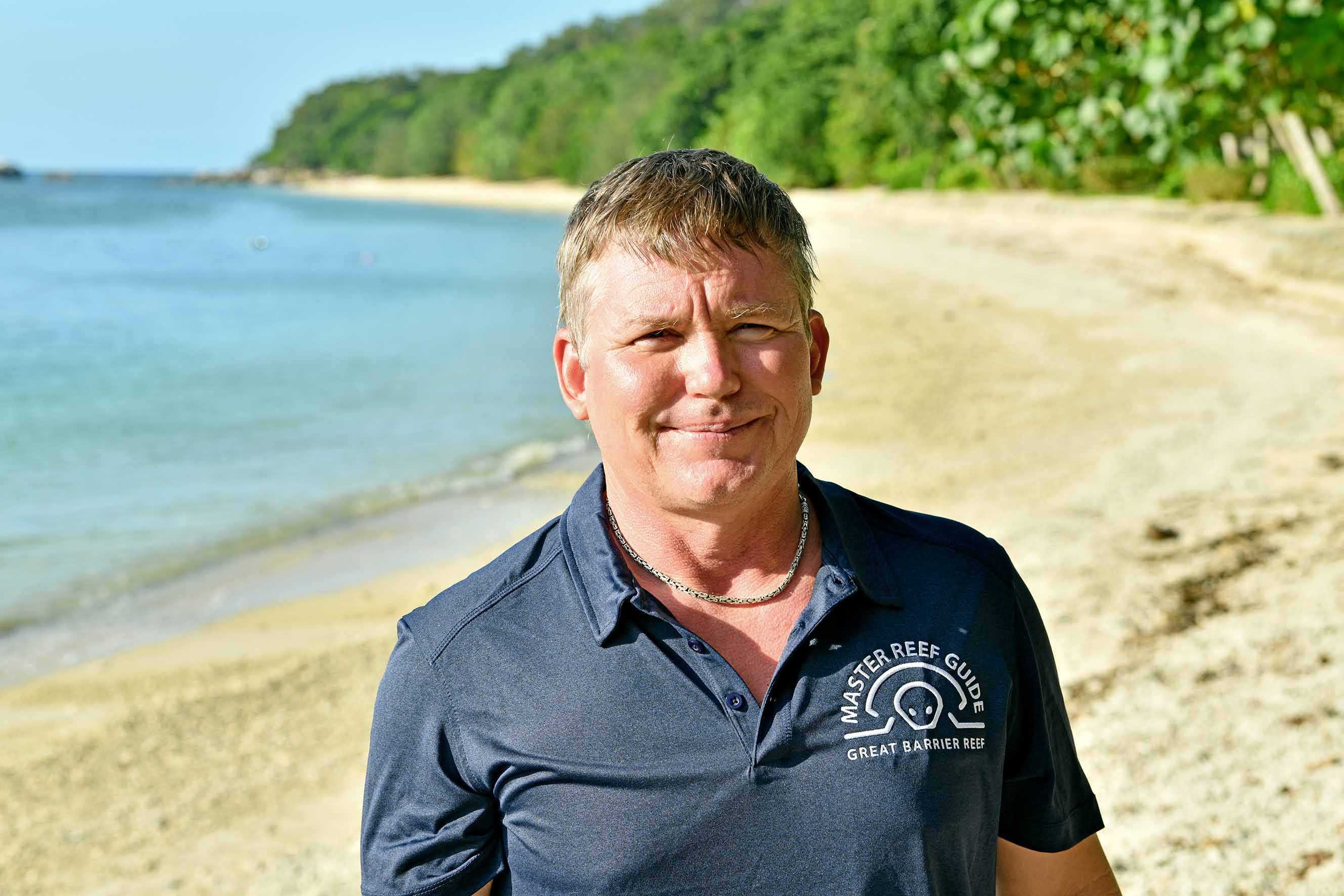
Eric Fisher
Marine Biologist at Magic Reef Cruises
Eric Fisher has been a Marine Biologist on the Great Barrier Reef for 19 years, working for Reef Magic Cruises. With a dream of connecting tourism and science, Eric and the team at Reef Magic are making that vision a reality.

Jamal Jompa
Professor in Marine Ecology at Hasanuddin University
Jamaluddin Jompa is a Professor in Marine Ecology at Hasanuddin University, with considerable experience in both research and management aspects of coastal and marine ecosystems with an emphasis on sustainable and multidisciplinary approaches. He has written a number of international publications and books in collaboration with international researchers and organizations.

David Suggett
Chief Scientist for the KAUST Reefscape Restoration Initiative (KRRI) at Shushah Island
Professor David Suggett is Chief Scientist for the KAUST Reefscape Restoration Initiative (KRRI) at Shushah Island and a Professor in Practice (BESE) at KAUST. He is a world leading expert in coral biology and how corals shape the functioning of reef systems, from scales spanning coral reef microbes to human-ecological interactions. Prior to moving to KAUST in 2023, he was a Professor at University of Technology Sydney, where he established and led the "Future Reefs" Program, Australia's largest team dedicated to unlocking how the environment and climate change influence corals of the Great Barrier Reef. This interest led to a world-first partnership between researchers and tourism (the largest economic asset to the Great Barrier Reef) to restore degraded sites at scale, the "Coral Nurture Program", which he co-founded and led for 4 years.

Isabel Nunez Lendo
PhD Researcher at University of Technology Sydney (UTS)
Dr. C. Isabel Nuñez Lendo is a coral reef scientist and co-founder of Sistars Productions, a documentary production company that is dedicated to revolutionizing documentary storytelling to change the world’s narrative with a multidisciplinary approach.
For over 15 years Dr. Lendo’s work has taken her to coral reefs around the world, including the Bahamas, the Philippines, Hawai’i, Puerto Rico, Colombia, Japan, Singapore, Saudi Arabia and Australia, where she has studied and contributed to 12 scientific research papers.
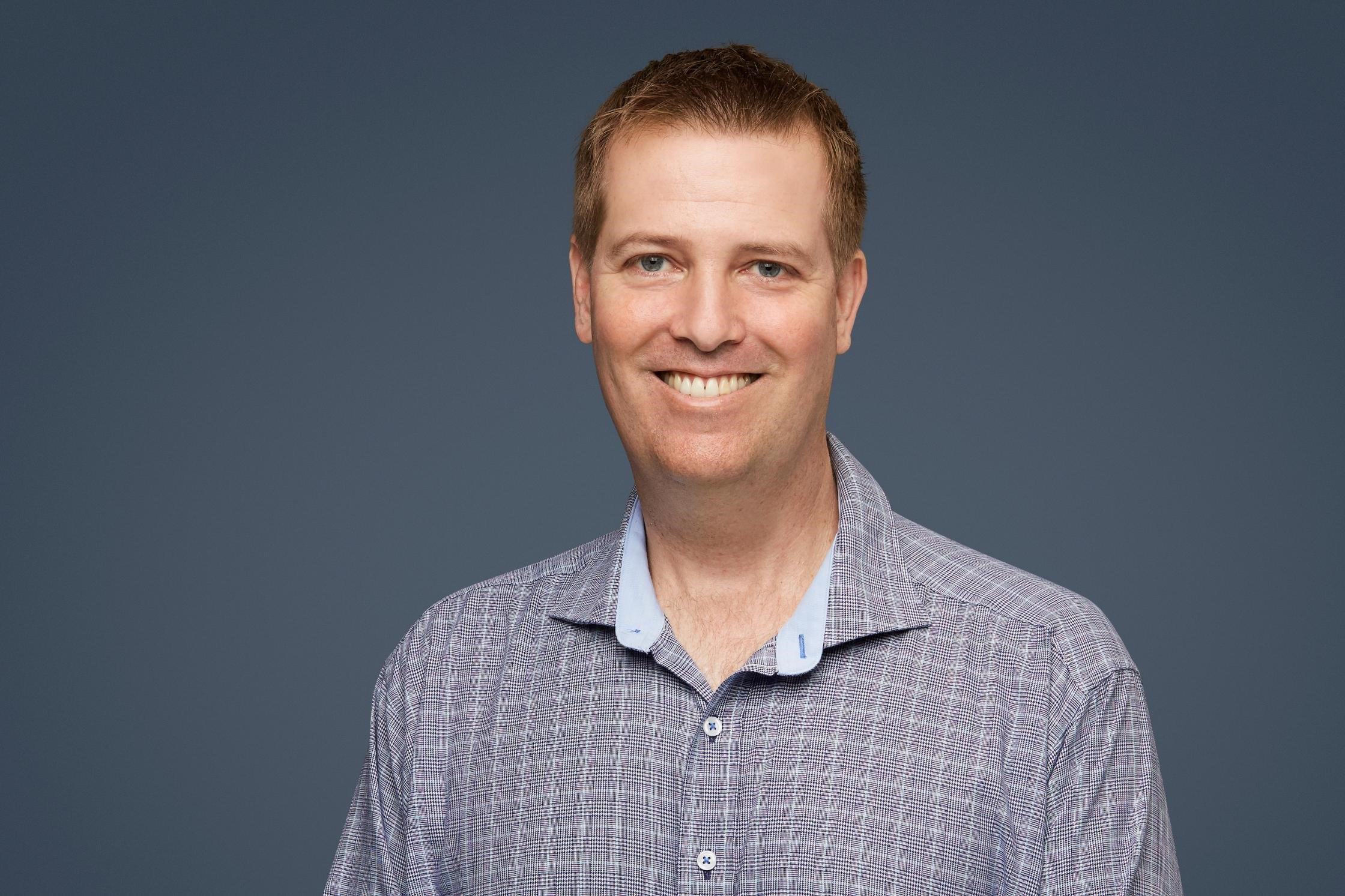
Ryan Lowe
Professor- University of Western Australia
Ryan Lowe is a Professor of coastal oceanography at the University of Western Australia and the Australian Research Council (ARC) Centre of Excellence for Coral Reef Studies.
His research focuses on the study of the physical drivers of coastal processes and hazards, including how nearshore processes govern coastal flooding and erosion risk that threaten coastal populations and infrastructure, as well as how these processes are modified by coastal ecosystems. A major area of research is also on developing novel solutions to mitigate wave-driven coastal hazard risk, with a particular emphasis on integration of natural and nature-based features. His research utilises a wide range of field studies, laboratory (physical modelling) experiments and numerical models.
Stories from science
Our community driven impact reaches far beyond our local reefs and islands. We engage with community leaders and representatives, as well as regional and international universities, to make sure our reef restoration creates the maximum possible benefit for as many people as possible.

Gita Alisa
Sheba Hope Grows Advocate, Indonesia

Alika Garcia
Executive Director, Kuleana Coral Restoration, Hawaii

Rindah Talitha Vida
Sheba Hope Grows Advocate, Indonesia

Rebecca Daniel
Sheba Hope Grows Advocate 2022, United Kingdom

Gita Alisa
Sheba Hope Grows Advocate, Indonesia
Gita is an early career standout marine scientist, currently undertaking her Masters degree of marine science at IPB University. Gita has been part of both Mars Coral Reef Restoration Science Fieldwork Expeditions which took place in September 2022 and May 2023, where she was mentored in restoration science and monitoring by renowned scientists Dr. Timothy Lamont, Ben Williams, Jason Lynch and Dr. Ines Lange. Over 2023, Gita will complete the Sheba Hope Advocate Program (under sponsorship) and a 3-month studentship between September to December where she will visit world leading research institutes, present at a UK scientific conference, and develop her research career under Dr. Timothy Lamont.
Thanks to Hope Grows I have seen enormous coral reefs come back to life and give hope to their surroundings, the nearby people, and the coastal ecosystem itself. Seeing people who share in their interests and hope come together for this project makes me proud to be on this team. We think together, prepare together, go to the field together, dive together, and make big builds together, all with the motivation to restore one of the most beautiful ecosystems in the world: coral reefs. I believe that Sheba Hope Grows will continue to grow stronger and bigger around the world. The distance does not bother us; the ocean that connects us creates one community.

Alika Garcia
Executive Director, Kuleana Coral Restoration, Hawaii
Alika has worked as a full-time Fire Fighter at the Honolulu Fire Department for the last 15 years and, in every moment of his spare time, works as the Executive Director of Kuleana Coral Restoration, an NGO focusing on coral restoration, reef monitoring and mapping, and education and outreach – all while maintaining traditional and sustainable native Hawaiian practices.
To me, Kuleana means taking responsibility to honor our past, take action in the present, and assure abundance for future generations. Kuleana is rooted in taking action and finding solutions, and that's what separates Hope Grows from other advocacy and policy talk that dominates the conservation world. The highlight of our partnership is that we are leading by an example of taking action, not just talking points and rhetoric. The Hope Grows movement exemplifies what community empowerment and corporate kuleana/responsibility could be for multiple industries around the world, and that's the only hope we have to make scalable and impactful change.

Rindah Talitha Vida
Sheba Hope Grows Advocate, Indonesia
Rindah is an early career standout marine scientist, currently undertaking her Masters degree of marine science at IPB University. Rindah has been part of both Mars Coral Reef Restoration Science Fieldwork Expeditions which took place in September 2022 and May 2023, where she was mentored in restoration science and monitoring by renowned scientists Dr. Timothy Lamont, Ben Williams, Jason Lynch and Dr. Ines Lange. Over 2023, Rindah will complete the Sheba Hope Advocate Program (under sponsorship) and a 3-month studentship between September to December where she will visit world leading research institutes, present at a UK scientific conference, and develop her research career under Dr. Timothy Lamont.
Having been involved in this program since 2022, Hope Grows has given me a one-of-a-kind opportunity to protect and restore critically threatened coral reef ecosystems from a researcher's perspective. I was really amazed with how this program works. Sheba Hope Grows is not a “one and done” restoration program, it is a long commitment and dedication from all parties involved. With the hope and motivation for a better future for coral, local island communities, researchers, and field officers work hand-in-hand to bring this goal to life. Protecting the beauty of our coral reefs, may be a never-ending journey, but I believe all the effort we have given will not be in vain. I have big hope for Sheba Hope Grows, and it's an honor to be a part of this program.

Rebecca Daniel
Sheba Hope Grows Advocate 2022, United Kingdom
Rebecca was our first ever Sheba Hope Grows Advocate and joined the coral restoration team out in the Maldives in 2022 where she received hands on experience in coral reef restoration.
I was left feeling incredibly inspired after spending a week in the Maldives contributing to the Sheba Hope Grows restoration project, in partnership with Maldives Coral Institute. It was a privilege to have contributed to the world’s largest coral restoration program as the first UK Hope Advocate (alongside the Maldivian Hope Advocate, Aiham) and to capture the story of the restoration through film and photography. A big highlight for me was the people I met; from the passionate team and volunteers to the friendly islanders who welcomed us into their homes and shared their stories of the reef with us. I also witnessed how the first phase of the project (completed in 2021) had dramatically changed a large area of previously degraded reef. It was an unforgettable experience to snorkel above both phases of the project - it filled me with hope to see the thousands of planted corals, which over time will kickstart the reefs natural recovery process. I came back to the UK feeling incredibly inspired and empowered to continue my journey within marine conservation, and I'm super grateful to be involved in the next stages of this ambitious and successful program as it expands across the globe.
The Innovation Pipeline
Our innovation program aspires to further improve the MARRS method by increasing the quality, efficiency, flexibility, scalability and sustainability of our global coral restoration efforts. This group effort engages our global partners in an innovation pipeline, to identify, screen and prioritize challenges and opportunities and generate ideas for delivering practical solutions to enhance our restoration efforts.
Next section
Global Scale
We are proud to work with a wide range of organisations. Together, we push the limits of our scientific understanding and implement community-based restoration initiatives worldwide.

